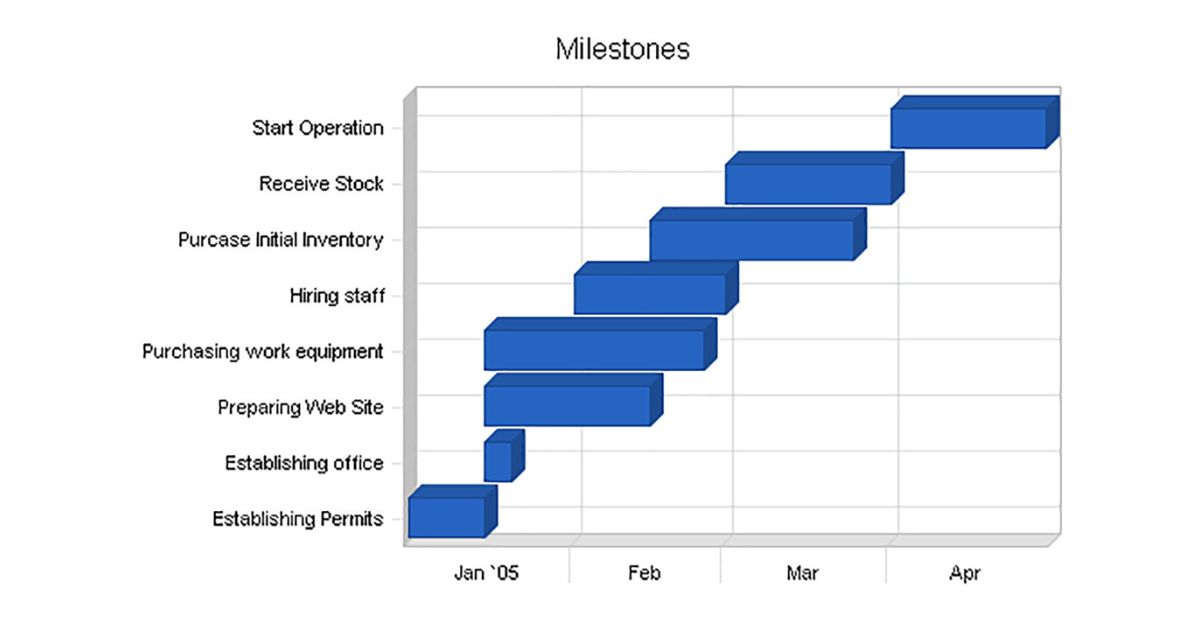Starting a contracting construction business can be a challenging but rewarding endeavor. As a general contractor business, you will have the opportunity to work on multiple projects, get success, and earn high-margin profit. This article will give you ten straightforward steps to learn how to start contractor business.
10 Steps to Construct General Contractor Business
A general contractor business is a company that specializes in managing and overseeing the construction of buildings and other structures. It’s essential to check the local laws and choose a niche before registering. Here are the ten successful steps to start.
Step 1: Research the Market and Choose Your Services
Researching the market before starting a general contracting business can help you choose a high-profit niche, make better-informed decisions, improve your chances of success, and increase your competitiveness in the market.

Here are a few tips you can take to understand this market:
- Study industry reports and statistics to get a sense of the size and growth potential of the market. Reading the reports and statistics about construction spending, project starts, and employment trends is best.
- Gather data on competitors to understand the competitive landscape and find opportunities to differentiate your business. Information about their services, pricing, marketing strategies, customer base, and network can give you many creative ideas.
- Conduct surveys and interviews to identify the types of projects and services in demand and the price points most attractive to your target market. You can interview homeowners and business owners to gather their needs.
- Update news and trends by keeping an eye on news articles, forums, and social media to stay current on industry developments.
- Check the market regulations about building codes, zoning laws, and other rules that may impact your business. It is essential to research the country and province regulations that apply to the construction industry in your area.
After researching the market, experts say that you should offer services matching your skills, experience, and budget. Besides, considering the scalability can increase your success rate.
Step 2: Draft Your Business Plan

Before starting a contractor business, it is essential to have a preliminary plan. It makes you clarify your goals, identify potential opportunities, and a road map to keep your business growing. Let’s think about some aspects below:
- The goals in the short and long term and a roadmap to achieve that goals
- Strategies to minimize risks and capitalize on opportunities
- Strategies to convince lenders, investors, and partners
- A budget to start a contractor business
- A draft of the marketing plan
Step 3: Register Your Business
Obtaining a contracting license may be a complex process, but registering your business is relatively simple. By registering your business with the local authorities and government, you will be in the official registry.
Before registering your business, here are must things to do:
- Choose a professional business name to represent your services. It must be unique to avoid legal troubles.
- Get a business structure (legal entity). There are multiple options, such as limited liability company (LLC), corporation, non-profit corporation, s corporation, etc. It is up to you to choose the best fit.
Each structure has its own tax implications, so it’s essential to research and understand them before registering your contracting business. It’s worth noting that you can change your business structure if you decide it’s necessary.
Step 4: Get All Required Licenses

With the necessary licenses, you can operate your business legally. If you fail to comply with the law, negative consequences may happen to your business, especially if you plan on working across multiple provinces or countries.
Remember that there are dozens of contractor classifications, such as general building contractors, engineering contractors, and specialty contractors. In general, starting a contractor business in Vietnam needs
- Business registration certificate from the Department of Planning and Investment. It is to confirm the legal status of the business.
- Investment registration certificate issued by the Department of Planning and Investment.
- Construction license issued by the Ministry of Construction. With this license, you can engage in construction activities in Vietnam.
- Tax registration certificate issued by the tax department. It is compulsory for all businesses in Vietnam.
- Labor registration certificate issued by the Department of Labor, War Invalids, and Social Affairs. You will need it to hire employees in Vietnam.
- Environment protection certificate issued by the Ministry of Natural Resources and Environment. Your company has to ensure the business activities meet environmental standards.
- Fire safety certificate issued by the Ministry of Public Security. It is to ensure the contractor’s business meets the fire safety standards.
- Quality management certification issued by the Vietnam Register. You need to prove that you can run a business with quality standards.
Step 5: Get Business Bank Account and Insurance

Getting one before accepting your first payment from a client is best. It helps to secure the liability protection gained by forming a legal entity. Avoid commingling your personal and business funds is also a good practice.
Opening a business bank account in Vietnam depends on the bank and the type of business. However, in general, the documents often are
- Business registration certificate
- Tax registration certificate
- Identity documents for the business owner(s)
- Business plan (including financial projections and the business’s products or services)
- Residence permit (for the business that its owner(s) are not Vietnamese citizens)
- Legalization of the documents
- Proof of address
Besides opening a bank account, getting insurance for your company is essential. It is wise to obtain all types of insurance:
- General liability insurance minimizes risks from bodily injuries or property damage during work.
- Workers’ compensation insurance helps you cover the cost of medical treatment or lost wages for injured employees when working.
- Tools and equipment insurance to avoid financial losses if your tools or equipment are stolen, damaged, or lost.
Step 6: Hire Subcontractors
Subcontractors can complete a significant portion of the work in your projects. Choosing the right individuals with the necessary skills and reputation can bring success at a lower cost.

You can hire your own employees, work with independent contractors, or outsource work to different subcontractors. However, it is essential to understand the tax implications and legal requirements of hiring and paying employees.
Independent contractors work as a separate entity and will invoice clients for their work directly. However, they are official employees in a legal sense under certain conditions. If your contractor is long enough, you have to manage taxes, penalties, benefits and reimburse wages.
See more: how much do contractors cost?
Step 7: Establish A System for Managing Contracts
Simply, it is to manage your projects. A good system ensures that your business complies with legal and regulatory requirements and facilitates communication. Moreover, it can create a smooth working process among all departments and improves efficiency.
Determine your needs, budget, and the complexity of your projects, and choose some of the systems below:
- Manual systems for small businesses: creating, storing, and managing contracts using physical or digital files.
- Contract management software: automating many tasks associated with contract management, such as tracking expiration dates, sending reminders, and generating reports.
- Cloud-based systems to store and manage data remotely. Cloud-based systems can provide businesses with greater flexibility and scalability and improve security and access to data from anywhere.
- Integrated Systems: This system integrates contract management functionality with other business processes, such as procurement, accounting, and CRM.
Step 8: Establish Your Target Market and Pricing Strategy

When starting a general contractor business, it is essential to consider the demand for the services you offer and the areas you plan to serve. It can help you anticipate the potential volume of customers who may be interested in hiring you and estimate your yearly earnings.
By understanding the demand and the potential market, you can make informed decisions about your pricing strategy.
Step 9: Boost Your Brand
Establishing a strong brand is essential for differentiating your general contractor business from competitors. It also represents the values, goals, and products. Here are essential steps to boost your brand:
- Design a logo that impresses the audience at first sight. Make it memorable and representative of your values.
- Promote your contractor business to help more people remember you. You can conduct promotion campaigns, exchange business cards, email marketing, establish an online presence with websites and social media, etc.
Step 10: Widen and keep good relationships with clients and partners
When starting, having connections with other experienced general contractors can provide valuable support. Joining industry associations and trade groups is a good idea. It helps you:
- Meet other general contractors and gain access to mentoring and industry-specific advice.
- Gain opportunities for new networking and business leads.

9 Tips When Start Contracting Firm
Starting a contracting firm can be a challenging but rewarding endeavor. Here are effective tips to get started with contractor business:
- Develop a business plan: A well-written business plan will help you define your business goals, target market, and strategies for achieving success.
- Obtain the necessary licenses and permits: Before starting your contracting firm, you will need to obtain the licenses and permits required by your state or local government.
- Research your market: Understand the demand for your services and identify your target audience.
- Create a strong brand: Develop a brand that represents your company’s values and goals and helps you stand out from the competition.
- Obtain contractor insurance: Protect yourself, your clients, and your business by obtaining the necessary insurance coverage.
- Build a network: Network with other general contractors, and join industry associations and trade groups to gain access to more opportunities.
- Manage contracts: Establish a system for managing contracts to ensure compliance with legal and regulatory requirements.
- Hire the right people: Hire the right employees and subcontractors to help you achieve your goals and serve your clients.
- Continuously improve: Be open to feedback and always look for ways to improve your services and grow your business.

By following these above steps and tips, you will be well on your way to start a contractor business. Hope this article can bring you a clear guideline on how to start contractor business. Keep following blogs’ ERA to update helpful information to run a successful company!
Ms. Tracy has worked in human resource consulting for over 15 years. A driven entrepreneur focused on business expansion and people development. She previously worked as Country Manager for an international Australia firm that specializes in global workforce management, as well as several key roles as Business Growth Director and Executive Search Director for both large local firms to effectively drive their business growth. A strong emphasis is placed on aligning organizational priorities/objectives with business needs. She has a large network of local business leaders and a thorough understanding of the local market.






